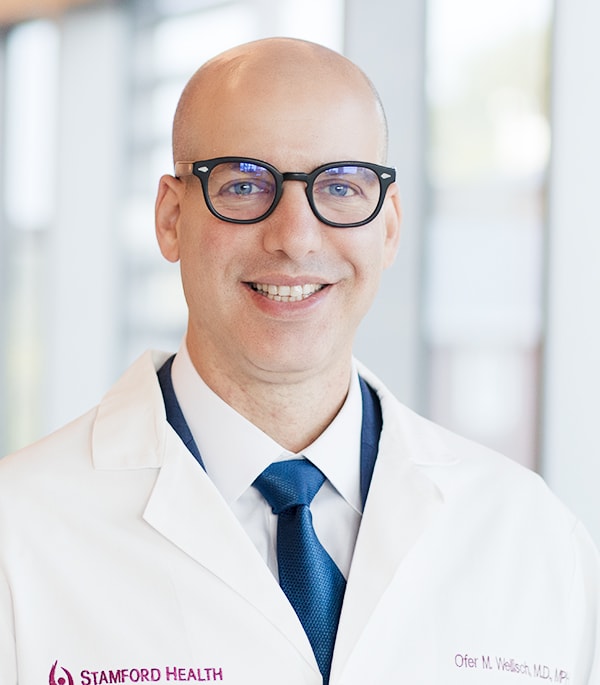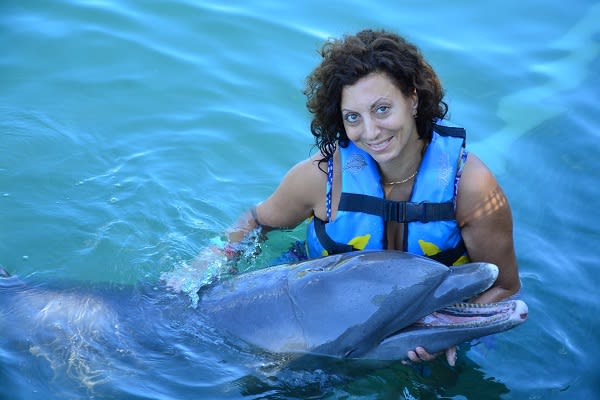An unexpected injury and chronic pain aren’t stopping this patient.
Paul never expected a stay in a quaint Vermont house to result in a serious injury.

Paul was rushed to the nearest hospital where an MRI ruled out a broken neck but confirmed a significant spinal cord injury. Paralyzed from the waist down as a result, Paul stayed in a Vermont hospital for a week and was later admitted to a rehabilitation facility for a month back in Connecticut. Paul regained his range of motion and felt fortunate to have walked out of the facility, albeit with a cane.
Over the next couple of years after his fall, Paul sought out treatment from various physicians in the Ridgefield and Danbury areas, but decided to look elsewhere for a medical team with proven success in treating spinal cord injuries which usually come with, “such an extreme level of chronic pain,” as he described.
“I knew there wasn’t much that could be done about the injury itself and that the pain was a condition I had to endure. I needed ways to cope,” Paul said.
“Paul sustained a significant spinal cord injury,” said Dr. Ofer Wellisch, Chief of Stamford Health’s Pain Management Center. “This type of injury to the spinal cord may result in some of the worst pain for one to endure and the pain is often persistent and extremely challenging to treat."
“Myelopathic pain or pain of spinal cord origin, often requires a multi-disciplinary approach. This approach involves healthcare providers of various disciplines and backgrounds working closely in collaboration towards an accurate diagnosis and optimal treatment plan,” explained Dr. Wellisch.
Paul seeks guidance and treatment from the Pain Management Center.
Paul first heard of Dr. Wellisch by way of a friend in Ridgefield. During their first meeting in the summer of 2018, he recalled Dr. Wellisch interviewing him to really gain an understanding of his injury and how it had been impacting his life.
“What appealed to me the most about the program was its three-pronged approach to pain: Pain Medicine, Physical Therapy and Psychological Support. With an injury like mine, I definitely needed all three of those,” Paul affirmed. Dr. Wellisch immediately made changes to Paul’s medication regime and referred him to Stamford Health Physical Therapy at the New Canaan YMCA, both of which made a noticeable difference. Additionally, 6 months of psychological support, facilitated directly through the Pain Management Center, helped him to reframe his thinking and put himself in a mental position to deal with chronic pain.
Regarding Paul’s progress, Dr. Wellisch remarked, “Paul is doing incredibly well, and this is likely due to his ability to leverage the various pain management resources we offered him. His engagement in both psychological and physical therapy, as well as working with the physician to optimize his medical regimen and monitor his function, have been essential to arrive at a working strategy to achieve his desired outcome and goals.”
Paul credited Dr. Wellisch and team for helping to improve his overall quality of life as they navigated what he described as such a difficult and fairly rare injury. “The lows aren’t so low anymore. The highs are higher. I lead a pretty normal life and have learned not to let the pain stop me.”
Paul continues to enjoy kayaking, golfing, walking his dog and spending time with his family. After having retired from IBM a decade ago, he’s dedicated himself to non-profit volunteering and working on a consulting basis. He’s currently on the Board of Directors for Weir Farm Art Center (Wilton, CT) as Chairman of the Weir Nature Preserve stewardship committee.
For others who are enduring what seems like insurmountable levels of chronic pain, Paul advised, “Chronic pain needs physical intervention, but you have to change your lifestyle to help mitigate the pain. [I believe for many] the psychological support helps to build the kind of strength and strategies to deal with the pain. You shouldn’t have to endure it on your own—other people are there to listen, which is a very important part of recovery.”
Featured Expert/ Author





